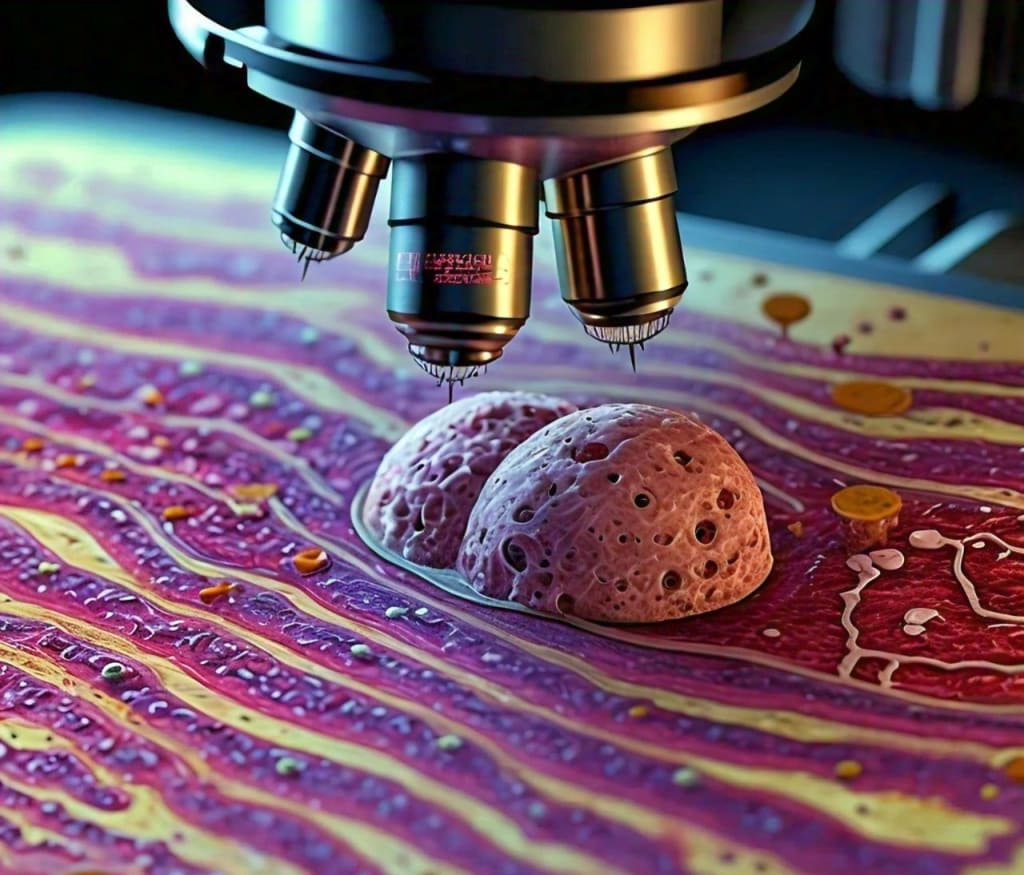
## Understanding Cancer: A Comprehensive Guide
Cancer is one of the most daunting diagnoses a person can receive. This complex group of diseases involves the uncontrolled division of abnormal cells in the body, which can invade nearby tissues and spread to other parts of the body. In this blog, we aim to provide an in-depth understanding of cancer, its types, symptoms, treatment options, and preventive measures.
### What is Cancer?
Cancer is a broad term for a collection of related diseases. In all types of cancer, some of the body’s cells begin to divide without stopping and spread into surrounding tissues. Normally, human cells grow and divide to form new cells as the body needs them. When cells grow old or become damaged, they die, and new cells take their place. However, when cancer develops, this orderly process breaks down. Cells become more abnormal, old or damaged cells survive when they should die, and new cells form when they are not needed. These extra cells can divide without stopping and may form growths called tumors.
### Types of Cancer
Cancer can originate almost anywhere in the body, which is made up of trillions of cells. Here are some common types:
- **Carcinomas**: Cancers that begin in the skin or the tissues that line or cover internal organs.
- **Sarcomas**: Cancers that begin in the bone, cartilage, fat, muscle, blood vessels, or other connective or supportive tissues.
- **Leukemia**: Cancers that begin in the blood-forming tissue of the bone marrow.
- **Lymphomas and Myelomas**: Cancers that begin in the cells of the immune system.
- **Central Nervous System Cancers**: Cancers that begin in the tissues of the brain and spinal cord.
### Symptoms of Cancer
Cancer symptoms vary depending on the type, but there are several common signs to be aware of:
- Unexplained weight loss
- Persistent fatigue
- Pain that does not go away
- Skin changes, such as yellowing, darkening, or redness
- Changes in bowel or bladder habits
- Persistent cough or trouble breathing
- Difficulty swallowing
### Diagnosis and Staging
Diagnosing cancer typically involves several steps:
1. **Medical History and Physical Exam**: The doctor will ask about your medical history and perform a physical exam.
2. **Laboratory Tests**: Tests of blood, urine, or other body fluids to detect abnormalities.
3. **Imaging Tests**: X-rays, CT scans, MRI, PET scans, and ultrasounds to see the inside of your body.
4. **Biopsy**: Removing a small sample of tissue for examination under a microscope.
Staging describes the severity of cancer based on the size and/or extent of the original tumor and whether or not cancer has spread in the body. Understanding the stage of cancer helps doctors plan the best treatment.
### Treatment Options
Cancer treatment varies depending on the type and stage of cancer. Common treatments include:
- **Surgery**: Removing the cancerous tissue.
- **Radiation Therapy**: Using high doses of radiation to kill cancer cells.
- **Chemotherapy**: Using drugs to kill cancer cells or stop their growth.
- **Immunotherapy**: Helping your immune system fight cancer.
- **Targeted Therapy**: Targeting the changes in cancer cells that help them grow, divide, and spread.
- **Hormone Therapy**: Removing or blocking hormones that fuel certain cancers.
### Prevention and Early Detection
While not all cancers can be prevented, there are several measures you can take to reduce your risk:
- **Lifestyle Changes**: Maintain a healthy diet, exercise regularly, avoid tobacco, and limit alcohol.
- **Regular Screenings**: Early detection can save lives. Regular screenings for breast, cervical, colon, and skin cancer can help detect cancer early.
- **Vaccinations**: Some cancers, like cervical cancer, can be prevented with vaccines (e.g., HPV vaccine).
### Conclusion
Cancer is a challenging and complex disease, but advancements in medical research are continuously improving the ways we diagnose, treat, and prevent it. Understanding the basics of cancer can empower you to make informed decisions about your health and seek timely medical advice. Stay informed, stay proactive, and remember that early detection is key in the fight against cancer.
For more detailed information and support, always consult healthcare professionals and trusted medical resources.
### Meta Description
Learn about the types, symptoms, diagnosis, treatment options, and preventive measures for cancer. Stay informed and proactive with our comprehensive guide on understanding cancer.
About the Creator
Tresha Kevin
I am Tresha Kevin an experienced content writer from the USA, boasting a decade of expertise in crafting engaging and informative content. With a keen eye for detail and a passion for story telling.
Enjoyed the story? Support the Creator.
Subscribe for free to receive all their stories in your feed. You could also pledge your support or give them a one-off tip, letting them know you appreciate their work.





Comments
There are no comments for this story
Be the first to respond and start the conversation.